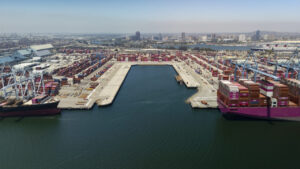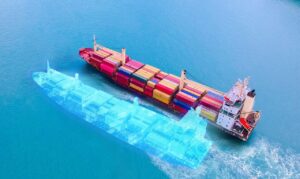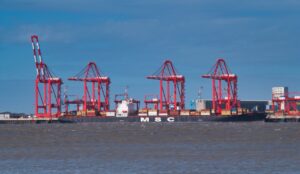International standards for nautical port information have taken a leap forward this week due to the efforts of organizations involved in the Rotterdam Port Call Optimisation Task Force.
The task force, a grouping of some of the key players in commercial maritime operations, has established a set form of communicating details such as depth, admission policy, and arrival and departure time to ensure safety and efficiency in the nautical and logistics sectors.
As a major player in realizing the standards, the port was one of the first to embrace the regulation by leading the way through using the relevant pilots.
A Web portal called Avanti is allowing the Port of Rotterdam Authority to focus on 'master data' such as depth and admission policy.
It is also using Pronto, a communication platform for the port community, which assists agents and other operators with a more transparent and efficient planning of ship services such as pilotage, use of terminals and bunkering.
Both share unambiguous information based on the new standards to improve the safety and efficiency of each service.
The Rotterdam Port Call Optimisation Task Force has been operating since 2014, when the International Harbour Masters' Association, United Kingdom Hydrographic Office and GS1, a global standards body for business communication, started working with a range of organizations to pool intelligence.
Learn why terminals are investing heavily in automation and physical infrastructure projects by reading 'The New Era of Container Shipping' technical paper by Sumitha Sampath, Senior Director of Product Strategy, Navis
Three of the biggest container shipping companies, Maersk, MSC, CMA CGM, were also instrumental in setting up the task force with multinational oil and gas company Shell and the ports of Algeciras, Busan, Gothenburg, Houston, Singapore and Ningbo Zhoushan.
By collaborating together, all the parties have ensured that nautical data on board of vessels corresponds to the information from the port.
The Port of Rotterdam Authority is seeking to promote the implementation and the global adoption of standards and the resulting applications by gaining cooperation from more ports.
It expects that the international unambiguity in communication will lower margins, eventually resulting in a reduction in costs and pollution as vessels call at ports faster and with more cargo.
The initial calculations amount to up to $ 80,000 in additional revenue and savings of 240 tonnes in CO2 emissions per port visit, depending on where the vessel comes from and at which berth it is located.
Allard Castelein, President of the Port of Rotterdam Authority, said: “With these standards as a base, we can not only optimise the services to our clients, but also develop new services that make the logistics chain more efficient.
“These standards provide a strong impetus for safety, sustainability and efficiency.”








